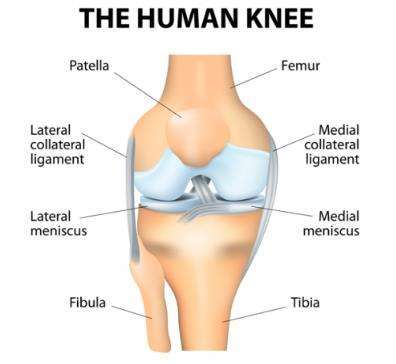Also called Arthroplasty or Knee Resurfacing is usually done to improve pain and restore mobility and weight bearing capabilities to a damaged, worn or diseased joint. Surgeons mostly implant a prosthetic shaped as a joint or cap the ends of the bones that form the knee joint with metal, ceramic or plastic components.. These procedures are very common in the USA and most patients experience a dramatic improvement in pain levels and overall mobility. The success of the knee surgery will largely depend on the post operative work done with a Physical Therapist and patients are advised to follow their instructions meticulously for a full recovery. In most cases these replacement knees will function well for approximately 15 to 20 years. Full recovery is typically 8 to 12 months.
TYPES OF KNEE REPLACEMENT
Knee replacements can be partial or total.
PARTIAL KNEE REPLACEMENT – This type of knee replacement is usually less traumatic and the recovery time is quicker. The incision is smaller as less bone is removed from only one side of the knee, but this replacement does not last as long as a full knee replacement. There will also be less risk of infection and less risk of blood clotting.
TOTAL KNEE REPLACEMENT – This type of full knee replacement is more common and will offer less pain and lasting results . However, the recovery time is longer and there is always a danger of scar tissue building up which will affect the mobility and stiffness of the knee. Again, the regular time and effort spent with your Physical Therapist is vital to gain your mobility back.
THREE COMMON CAUSES
Damage to the knee is usually caused by rheumatoid arthritis, osteoarthritis or post-traumatic arthritis due to an earlier injury.
RHEUMATOID ARTHRITIS – Chronic inflammation can do great damage to the cartilage in the knee resulting in bones rubbing or crunching together which then causes great pain and stiffness.
OSTEOARTHRITIS – This type of damage is usually age related and is a result of inflammation breaking down the cartilage in the joints.
POST TRAUMATIC ARTHRITIS – This is usually due to an injury of the bones or ligaments around the knee affecting the cartilage.
HELP YOUR BODY HEAL CORRECTLY
This is the time of no compromise! Follow a healthy diet and a regular exercise program with your Physical Therapist.
While in hospital they may recommend a continuous passive motion (CPM) machine, which is a machine that slowly moves the knee while in bed. Some doctors believe this decreases the swelling by elevating the leg and improves blood circulation by moving the limb. The first few days after surgery you many be prescribed pain medication and may need to use crutches or a walker for a while.
A Specific Exercise Program and Personal Activity Program will be designed by your Physical Therapist aimed particularly on the type of surgery you have undergone. Your Physical Therapist will usually recommend 20-30 minutes exercise two – three times per day. Your total recovery will depend on the effort you put into this program. These exercises will have to be done several times a day. Your Physical Therapist will progress the program to gradually increase your walking, sitting, standing and eventually climbing stairs.
SAFETY AT HOME
- Don’t bend down to lift things off the floor
- Remove any carpets that may cause you to trip and fall
- Sleep downstairs for the first few weeks
- Crutches, walkers and a stick may be useful for the first few weeks
- Don’t stand too long which may cause swelling
- Keep the leg raised on a footstool when sitting
- Avoid soaking the wound until the scar is completely healed
- Monitor any signs of redness, excessive swelling around the wound, drainage from the wound, and body temperature for possible infections
- Have a non slip chair in the shower
- Secure any loose wires in the house
We hope the above information has been helpful and we are available to answer any further questions should you wish to contact us:
2300 Westwood Blvd STE. 100,
Los Angeles , CA 90064
TELEPHONE: 424 365 2083
FAX: 310 943 3532
EMAIL: jfptoffice@gmail.com



